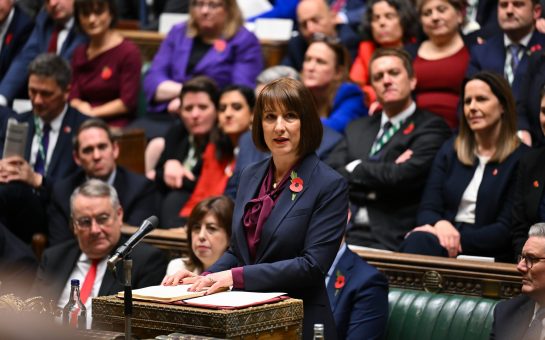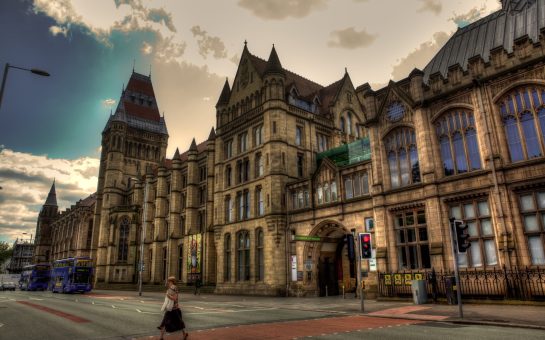1859. A man’s body is recovered from a Manchester Canal. Upon routine examination, it is discovered that the man is biologically female.
Forming the basis for a brand new play to be performed in Manchester this month as part of the National Festival of LGBT, the fascinating life story of Harry Stokes reclaims a forgotten trans pioneer, challenging modern perceptions about LGBT individuals in the Victorian era.
When Mr Stokes was found drowned in the River Irwell, there was little on the surface to distinguish anything intriguing about his life – his background seemed to be similar to that of many average men of the 1900s, he lived a successful life in Manchester and married twice.
It’s therefore even more surprising that the incredible revelation that he had been born female and lived life as a man in this period appears to have been lost in time.
First teaser pic of Mister Stokes: The Man-Woman of Manchester @LGBTHM @MHCentre @PHMMcr @suesanders03 #StokesLGBTHM pic.twitter.com/jpDMHO2Z0G
— PagelightProductions (@pagelightp) February 9, 2016
Based on a few remaining records of this life, Mister Stokes: The Man-Woman of Manchester explores Harry Stokes’ experiences as a woman living in a man in Victorian Manchester.
LGBT historian Emma Vickers aided writer Abi Hynes, who was keen to bring the story into the spotlight.
“It’s a remarkable story and it’s incredible that it’s remained untold so far,” she told MM.
“It feels like a wonderful opportunity to bring to light part of Manchester’s history that should, by all rights, be well-known.”
‘Transgender’ was an unheard of as a concept in the Victorian era (the term didn’t in fact come into usage until 1971).
The austere, stoic and in many ways suppressed nature of 1900s British society in regards to gender identity, sexuality and sexual politics was not what many would assume would allow for the possibility of leading a transgender life.
There are accounts of arrests for cross-dressing in London during this period – Oscar Wilde was infamously convicted for his homosexual relationships.
The play has received the backing of some highly esteemed academics and activists on transgender issues in society throughout the research and production process, including Stephen Whittle, OBE, Professor of Equalities Law in the School of Law at Manchester Metropolitan University, who has avidly campaigned for the social and legal recognition for transsexual people throughout his career.
TransAction Theatre Company Director and performer Joey Hateley will play the lead role of Harry, supported by the award-winning Jo Dakin as Ada, one of Stokes’ wives.
Tis an honor to be part of the portal that brings the jigsaw pieces of the past together to make a better future… https://t.co/NRsxsV1btV
— Joey Hateley (@GenderJoker) February 10, 2016
The trans-feminist actor recently tweeted: “Tis an honour to be part of the portal that brings the jigsaw pieces of the past together to make a better future.”
Prior performances have been described by poet Chloe Poems as ‘image subversion at its most political and sexy!’
Mister Stokes: The Man-Woman of Manchester is being brought to the stage by Pagelight Productions.
And co-founder Ric Brady told MM: “Stephen M Hornby and I are thrilled to be able to bring Mister Stokes’ story to the stage.
“Unearthing stories from our LGBT past is something we take great pride in.
“We strongly believe a community needs to know its history, and unfortunately, our community’s history has often been forgotten.
“There aren’t enough plays about trans history and we’re hoping that Mister Stokes: The Man-Woman of Manchester will be the first of many.”
The production forms part of a programme of talks and performances for the Festival of LGBT History at The People’s History Museum, celebrating LGBT History Month.
The event was established 11 years ago by the Chair of Schools OUT UK (a not-for-profit organisation challenging homophobia, biphobia and transphobia in schools) and Professor Emeritus of the Harvey Milk Institute Sue Sanders.
“The aim of LGBT History Month is simple: to make members of the LGBT community, in all their diversity, visible and safe,” Sue said.
“I’d seen the success of Black History Month back in 2004 and thought it was something that was needed for the LGBT community.
If you want to catch my new short play, Mister Stokes, as part of @LGBTHM, it’s on at 12.30 on Sat 27 Feb @PHMMcr: https://t.co/ckdUeKcF1B
— Abi F-A Hynes (@AbiFaro) February 8, 2016
“The event was intended to pull together new resources to promote LGBT issues in society and it’s been massively successful.
“The way Manchester took to LGMT History Month and the National Festival of LGBT History last year was phenomenal for both popular and academic events.
“As such, we’ve expanded this year so that Manchester is now the culmination of six hubs hosting both popular and academic events.”
The theatre performance of Mister Stokes: The Man-Woman of Manchester takes place at The People’s History Museum, Manchester, on Saturday February 27, with admission free for the day’s events, although donations are encouraged.
Image courtesy of Pagelight Productions, with thanks



